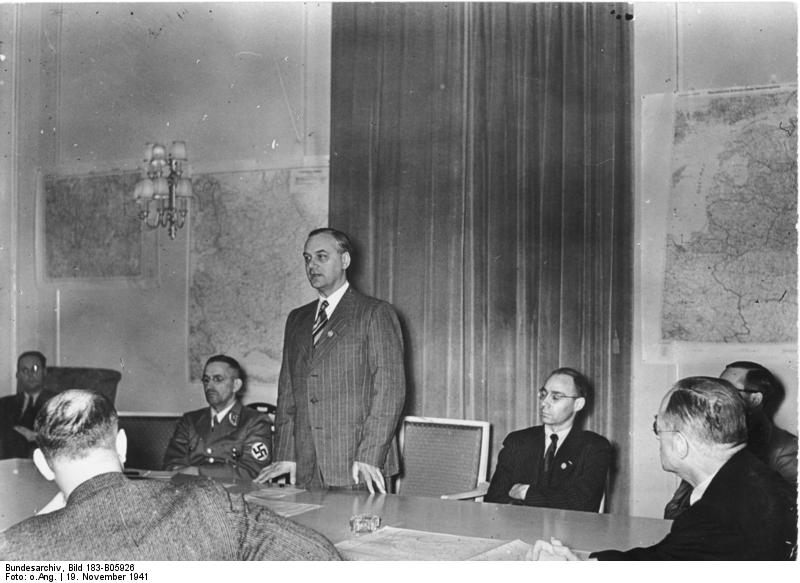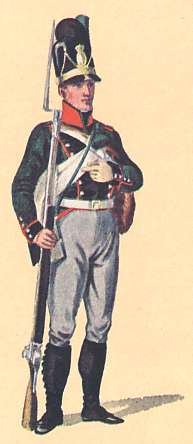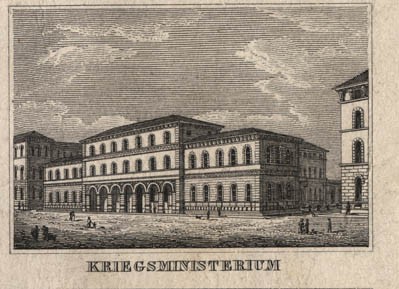|
Wilhelm Weiss
Wilhelm Weiss (German Wilhelm Weiß) (31 March 1892 – 24 February 1950) was, in the time of the Third Reich, an SA-'' Obergruppenführer'' as well as editor-in-chief of the NSDAP's official newspaper, the ''Völkischer Beobachter.'' Early career After finishing his studies at the Gymnasium in Munich, Weiss began a career as an officer in the Bavarian Army. By 1911 he was an ensign (''Fahnenjunker'') and by 1913 a lieutenant. During the First World War, Weiss was transferred in 1915 to the Airmen's Squad (''Fliegertruppe''). On one of his battle deployments, he was shot down, as a result of which he lost his left leg. Nonetheless, in 1917, he was promoted to ''Oberleutnant'' before being transferred to the Bavarian War Ministry in 1918, shortly before the war ended. Through his activities in the Bavarian War Ministry's press department, Weiss came to journalism after the First World War. In 1920, when it turned out that the ''Reichswehr'', which was busy reconstituting itse ... [...More Info...] [...Related Items...] OR: [Wikipedia] [Google] [Baidu] |
Stadtsteinach
Stadtsteinach is a town in the district of Kulmbach, in Bavaria, Germany. It is situated in the Frankenwald, 8 km northeast of Kulmbach. It is known for its proximity to mountains, fields and nature reserves. Town divisions Stadtsteinach is arranged in the following boroughs: left, 250px, Steinachklamm in the valley of Untere Steinach river in winter Sons and daughters of the town * Karl Burkart (1798–1851), German administrative lawyer * Friedrich Baur, founder of Baur Versand, established 1925 in Altenkunstadt, a division of Burgkunstadt. Baur Versand had been one of the pioneers of mail order, later online business and is part of the Otto Group since 1997. * Michael Schnabrich (1880–1939), German politician (SPD) and Reichstag deputy of Weimar Republic (voting against the Enabling Act of Adolf Hitler) * Wilhelm Weiss (1892-1950), politician (NSDAP), SA-Obergruppenführer and chief editor of the Völkischer Beobachter The ''Völkischer Beobachter'' (; "' ... [...More Info...] [...Related Items...] OR: [Wikipedia] [Google] [Baidu] |
Bavarian Army
The Bavarian Army was the army of the Electorate (1682–1806) and then Kingdom (1806–1919) of Bavaria. It existed from 1682 as the standing army of Bavaria until the merger of the military sovereignty (''Wehrhoheit'') of Bavaria into that of the German State in 1919. The Bavarian Army was never comparable to the armies of the Great Powers of the 19th century, but it did provide the Wittelsbach dynasty with sufficient scope of action, in the context of effective alliance politics, to transform Bavaria from a territorially-disjointed small state to the second-largest state of the German Empire after Prussia. History 1682–1790: From the first standing army to the Napoleonic Wars The '' Reichskriegsverfassung'' of 1681 obliged Bavaria to provide troops for the Imperial army. Moreover, the establishment of a standing army was increasingly seen as a sign of nation-statehood and an important tool of absolutist power-politics. At a field camp in Schwabing on 12 October 1682, the n ... [...More Info...] [...Related Items...] OR: [Wikipedia] [Google] [Baidu] |
Bundesarchiv Bild 183-B05926, Pressekonferenz, A
, type = Archive , seal = , seal_size = , seal_caption = , seal_alt = , logo = Bundesarchiv-Logo.svg , logo_size = , logo_caption = , logo_alt = , image = Bundesarchiv Koblenz.jpg , image_caption = The Federal Archives in Koblenz , image_alt = , formed = , preceding1 = , preceding2 = , dissolved = , superseding1 = , superseding2 = , agency_type = , jurisdiction = , status = Active , headquarters = PotsdamerStraße156075Koblenz , coordinates = , motto = , employees = , budget = million () , chief1_name = Michael Hollmann , chief1_position = President of the Federal Archives , chief2_name = Dr. Andrea Hänger , chief2_position ... [...More Info...] [...Related Items...] OR: [Wikipedia] [Google] [Baidu] |
Nazism
Nazism ( ; german: Nazismus), the common name in English for National Socialism (german: Nationalsozialismus, ), is the far-right totalitarian political ideology and practices associated with Adolf Hitler and the Nazi Party (NSDAP) in Nazi Germany. During Hitler's rise to power in 1930s Europe, it was frequently referred to as Hitlerism (german: Hitlerfaschismus). The later related term "neo-Nazism" is applied to other far-right groups with similar ideas which formed after the Second World War. Nazism is a form of fascism, with disdain for liberal democracy and the parliamentary system. It incorporates a dictatorship, fervent antisemitism, anti-communism, scientific racism, and the use of eugenics into its creed. Its extreme nationalism originated in pan-Germanism and the ethno-nationalist '' Völkisch'' movement which had been a prominent aspect of German nationalism since the late 19th century, and it was strongly influenced by the paramilitary groups that emerged af ... [...More Info...] [...Related Items...] OR: [Wikipedia] [Google] [Baidu] |
Machtergreifung
Adolf Hitler's rise to power began in the newly established Weimar Republic in September 1919 when Hitler joined the '' Deutsche Arbeiterpartei'' (DAP; German Workers' Party). He rose to a place of prominence in the early years of the party. Being one of its best speakers, he was made the party leader after he threatened to otherwise leave. In 1920, the DAP renamed itself to the ''Nationalsozialistische Deutsche Arbeiterpartei'' – NSDAP (National Socialist German Workers' Party, commonly known as the Nazi Party). Hitler chose this name to win over German workers. Despite the NSDAP being a right-wing party, it had many anti-capitalist and anti-bourgeois elements. Hitler later initiated a purge of these elements and reaffirmed the Nazi Party's pro-business stance. By 1922 Hitler's control over the party was unchallenged. In 1923, Hitler and his supporters attempted a coup to remove the government via force. This seminal event was later called the Beer Hall Putsch. Upon its fai ... [...More Info...] [...Related Items...] OR: [Wikipedia] [Google] [Baidu] |
Adolf Hitler
Adolf Hitler (; 20 April 188930 April 1945) was an Austrian-born German politician who was dictator of Nazi Germany, Germany from 1933 until Death of Adolf Hitler, his death in 1945. Adolf Hitler's rise to power, He rose to power as the leader of the Nazi Party, becoming the Chancellor of Germany, chancellor in 1933 and then taking the title of in 1934. During his dictatorship, he initiated European theatre of World War II, World War II in Europe by invasion of Poland, invading Poland on 1 September 1939. He was closely involved in military operations throughout the war and was central to the perpetration of the Holocaust: the genocide of Holocaust victims, about six million Jews and millions of other victims. Hitler was born in Braunau am Inn in Austria-Hungary and was raised near Linz. He lived in Vienna later in the first decade of the 1900s and moved to Germany in 1913. He was decorated during his Military career of Adolf Hitler, service in the German Army in Worl ... [...More Info...] [...Related Items...] OR: [Wikipedia] [Google] [Baidu] |
Nazi Party
The Nazi Party, officially the National Socialist German Workers' Party (german: Nationalsozialistische Deutsche Arbeiterpartei or NSDAP), was a far-right politics, far-right political party in Germany active between 1920 and 1945 that created and supported the ideology of Nazism. Its precursor, the German Workers' Party (; DAP), existed from 1919 to 1920. The Nazi Party emerged from the Extremism, extremist German nationalism, German nationalist, racism, racist and populism, populist paramilitary culture, which fought against the communism, communist uprisings in post–World War I Germany. The party was created to draw workers away from communism and into nationalism. Initially, Nazi political strategy focused on anti–big business, anti-bourgeoisie, bourgeois, and anti-capitalism, anti-capitalist rhetoric. This was later downplayed to gain the support of business leaders, and in the 1930s, the party's main focus shifted to Antisemitism, antisemitic and Criticism of ... [...More Info...] [...Related Items...] OR: [Wikipedia] [Google] [Baidu] |
Homeland
A homeland is a place where a cultural, national, or racial identity has formed. The definition can also mean simply one's country of birth. When used as a proper noun, the Homeland, as well as its equivalents in other languages, often has ethnic nationalist connotations. A homeland may also be referred to as a ''fatherland'', a ''motherland'', or a ''mother country'', depending on the culture and language of the nationality in question. Motherland Motherland refers to a ''mother country'', i.e. the place in which somebody grew up or had lived for a long enough period that somebody has formed their own cultural identity, the place that one's ancestors lived for generations, or the place that somebody regards as home, or a Metropole in contrast to its colonies. People often refer to Mother Russia as a personification of the Russian nation. The Philippines is also considered as a motherland which is derived from the word "''Inang Bayan''" which means "Motherland". Within the B ... [...More Info...] [...Related Items...] OR: [Wikipedia] [Google] [Baidu] |
Captain (land And Air)
The army rank of captain (from the French ) is a commissioned officer rank historically corresponding to the command of a company of soldiers. The rank is also used by some air forces and marine forces. Today, a captain is typically either the commander or second-in-command of a company or artillery battery (or United States Army cavalry troop or Commonwealth squadron). In the Chinese People's Liberation Army, a captain may also command a company, or be the second-in-command of a battalion. In some militaries, such as United States Army and Air Force and the British Army, captain is the entry-level rank for officer candidates possessing a professional degree, namely, most medical professionals (doctors, pharmacists, dentists) and lawyers. In the U.S. Army, lawyers who are not already officers at captain rank or above enter as lieutenants during training, and are promoted to the rank of captain after completion of their training if they are in the active component, or after a ... [...More Info...] [...Related Items...] OR: [Wikipedia] [Google] [Baidu] |
Reichswehr
''Reichswehr'' () was the official name of the German armed forces during the Weimar Republic and the first years of the Third Reich. After Germany was defeated in World War I, the Imperial German Army () was dissolved in order to be reshaped into a peacetime army. From it a provisional Reichswehr was formed in March 1919. Under the terms of the Treaty of Versailles, the rebuilt German army was subject to severe limitations in size and armament. The official formation of the Reichswehr took place on 1 January 1921 after the limitations had been met. The German armed forces kept the name 'Reichswehr' until Adolf Hitler's 1935 proclamation of the "restoration of military sovereignty", at which point it became part of the new . Although ostensibly apolitical, the Reichswehr acted as a state within a state, and its leadership was an important political power factor in the Weimar Republic. The Reichswehr sometimes supported the democratic government, as it did in the Ebert-G ... [...More Info...] [...Related Items...] OR: [Wikipedia] [Google] [Baidu] |
Ministry Of War (Kingdom Of Bavaria)
The Ministry of War (german: Kriegsministerium) was a ministry for military affairs of the Kingdom of Bavaria, founded as ''Ministerium des Kriegswesens'' on October 1, 1808 by King Maximilian I Joseph of Bavaria. It was located on the Ludwigstraße in Munich. Today the building, which was built by Leo von Klenze between 1824 and 1830, houses the Bavarian public record office, ''Bayerisches Hauptstaatsarchiv und Staatsarchiv München''. History The ministry was the successional institution of the royal Bavarian ''Hofkriegsrat'' (court war council, founded in 1620) and its follow-on institutions that were responsible for the military: * ''Oberkriegskollegium'' (upper war council, after 1799) * ''Kriegsjustizrat und Kriegsökonomierat'' (war justice council and war economic council, after 1801) * ''Geheimes Kriegsbureau'' (privy war bureau, after 1804) The name of the ''Ministerium des Kriegswesens'' changed to ''Staatsministerium der Armee'' in 1817, and finally to ''Kriegsminist ... [...More Info...] [...Related Items...] OR: [Wikipedia] [Google] [Baidu] |







